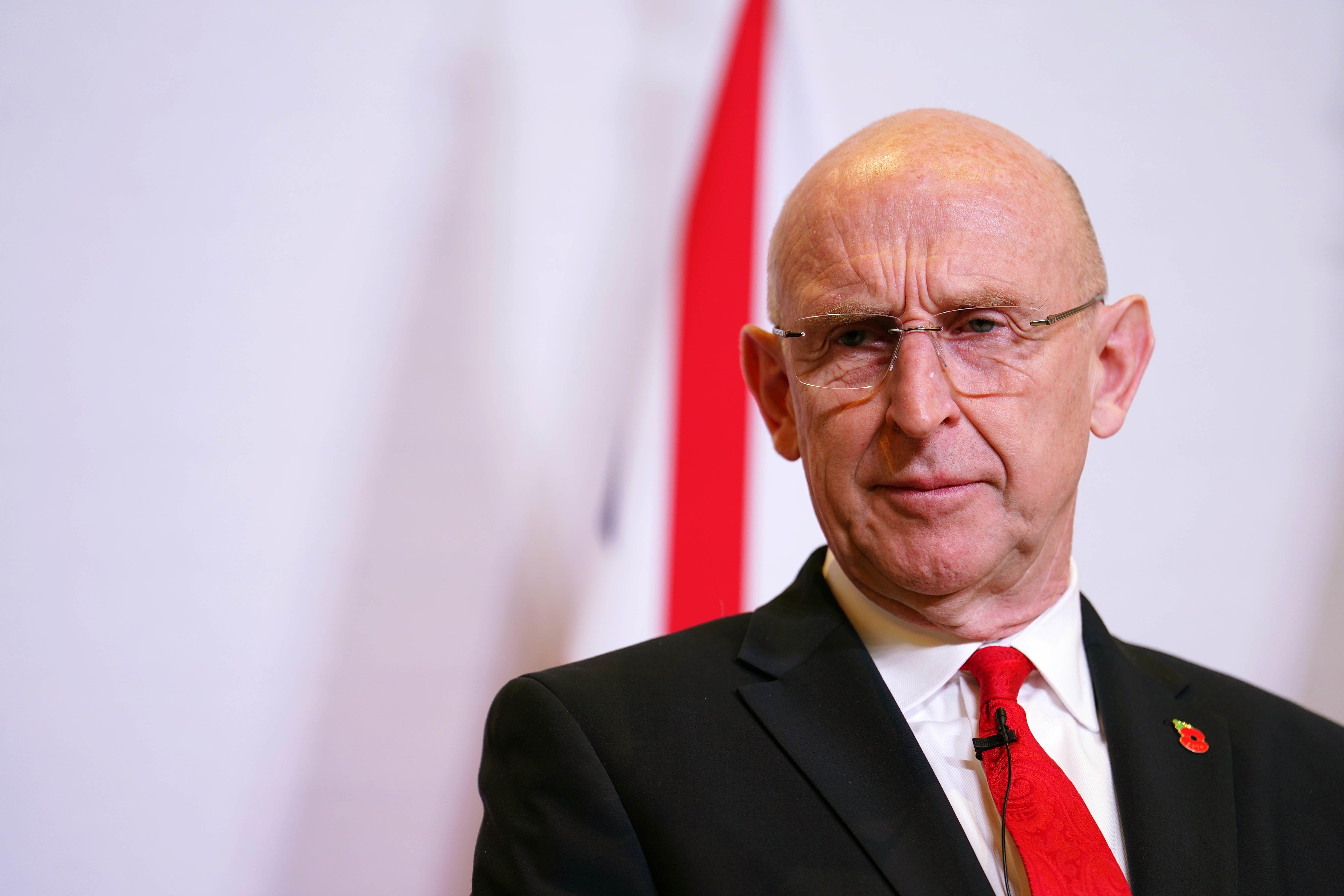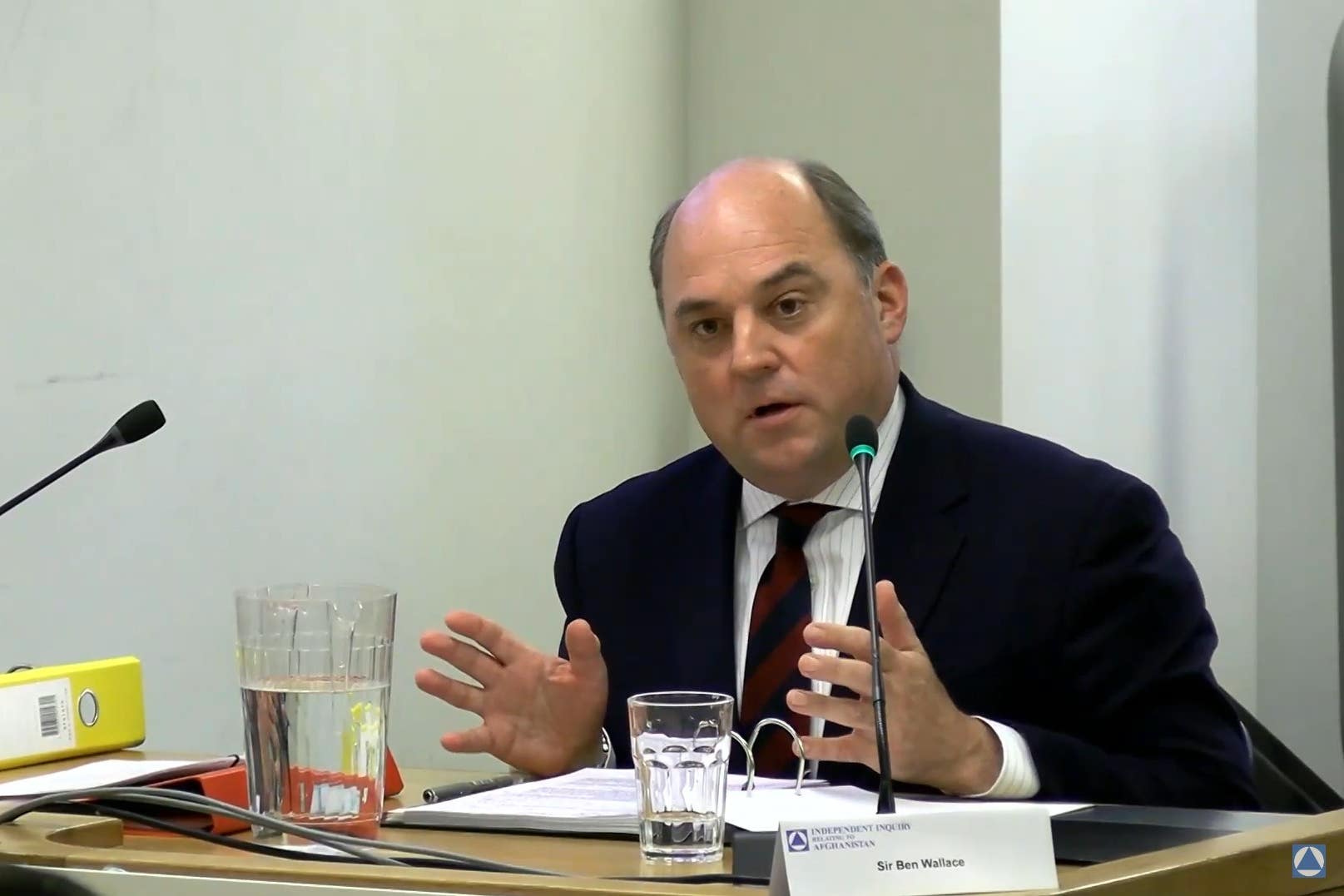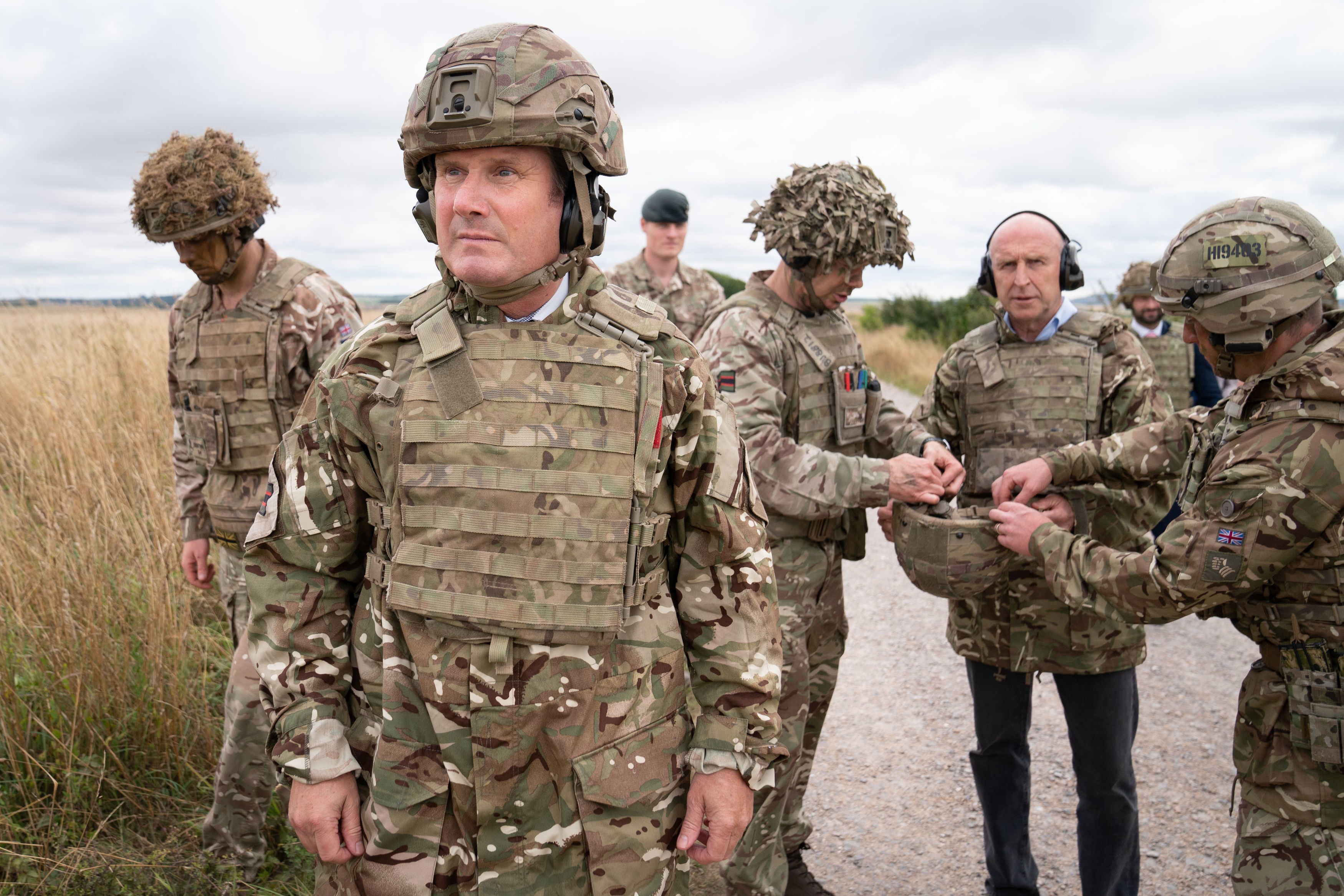Defence secretary admits: British armed forces can’t stop an invasion
In a damning assessment, John Healey said the military could conduct ‘operations’ but would be unable to deter an enemy from invading
Your support helps us to tell the story
From reproductive rights to climate change to Big Tech, The Independent is on the ground when the story is developing. Whether it's investigating the financials of Elon Musk's pro-Trump PAC or producing our latest documentary, 'The A Word', which shines a light on the American women fighting for reproductive rights, we know how important it is to parse out the facts from the messaging.
At such a critical moment in US history, we need reporters on the ground. Your donation allows us to keep sending journalists to speak to both sides of the story.
The Independent is trusted by Americans across the entire political spectrum. And unlike many other quality news outlets, we choose not to lock Americans out of our reporting and analysis with paywalls. We believe quality journalism should be available to everyone, paid for by those who can afford it.
Your support makes all the difference.Britain’s armed forces are so depleted that the country is not ready to fend off an invasion, the defence secretary has warned.
In his most damning assessment yet of the state of the UK’s defence capability, John Healey said the military could conduct “operations”, but would be unable to stop an enemy from invading.
As Labour increasingly seeks to paint a dire inheritance it was left by the Conservatives, Mr Healey said: “The UK, in keeping with many other nations, has essentially become very skilled and ready to conduct military operations. What we’ve not been ready to do is to fight. Unless we are ready to fight we are not in shape to deter.”

He told Politico’s Power Play podcast that the state of the armed forces when he became defence secretary in July was “far worse with far deeper problems than we expected”.
Amid mounting frustration at the government’s delays in setting a timeline for when defence spending will reach 2.5 per cent of Britain’s GDP, Mr Healey also conceded that it is “taking [the government] a while to get going”.
One of the Labour government’s first acts after winning the general election was to launch a thorough “root and branch” assessment of the state of Britain’s military capabilities.
Sir Keir Starmer at the time said Britain’s defence capabilities had been left “hollowed out” by 14 years of Conservative neglect, promising a “roadmap” to increasing the UK’s defence spending to the target.
But former defence secretary Ben Wallace condemned Labour’s approach to the armed forces, saying “we don’t need more distractions from ‘new reviews’”. He told The Independent: “For our forces to be match fit and ready, we need to continue a steady and annual growth in the budget to ensure the reviews of the last few years are actually delivered.”

Mr Wallace said Labour’s wars in Iraq and Afghanistan depleted the military and “nobody really started to fund them properly until my tenure”.
And he warned: “The new government is using its review to avoid funding and will return us to the dark old days of hollowing out that happened under both Labour and the Conservatives.”
After Mr Healey’s comments, The Times reported that senior military chiefs inside the Ministry of Defence (MoD) share his view that if the armed forces were forced into combat any time soon they could lose in a fight.
And in February, MPs on parliament’s defence committee warned Britain was not sufficiently prepared to fight an all-out war, despite such readiness being a vital deterrent to Britain’s adversaries.
The military is “consistently overstretched”, with the “unrelenting pressure” on personnel exacerbating the crisis in recruitment and retention which is seeing more people leaving the armed forces than joining, the influential group of MPs warned.
But Tory MP James Cartlidge said Mr Healey and MPs “should not talk down the armed forces’ capability”.

He told The Times the UK has the “ultimate deterrence” in the Trident nuclear programme and had committed nearly 20,000 personnel to a recent Nato exercise.
He added: “Equally there are gaps to fill and replenish, not least in terms of replacing the munitions we’ve rightly gifted to Ukraine but also the impact of a buoyant labour market on retention.
“We accepted the need to increase the defence budget to 2.5 per cent because the threat is growing and the nature of warfare is rapidly evolving.”
Sir Keir’s defence review will determine the future defence posture of the UK, the capabilities needed and chart a path to Britain meeting Labour’s “cast iron commitment” of defence spending hitting 2.5 per cent of GDP.
It will put a “Nato-first” policy at the heart of the UK’s plans and will be drawn up with input from allies, experts and the defence industry.
And the review will respond not just to Russia’s invasion of Ukraine but also the instability in the Middle East and the rise of authoritarian countries.
Labour’s ranks in the Commons were swelled after their election win by a record number of ex-military personnel who had recently left the services.
They include Colonel Alistair Carns, a Royal Marine awarded the Military Cross for missions undertaken in Afghanistan, who was made veterans minister on his first day in parliament.

Join our commenting forum
Join thought-provoking conversations, follow other Independent readers and see their replies
Comments